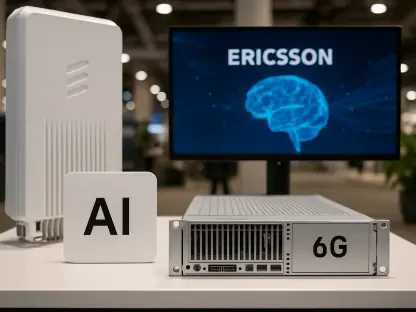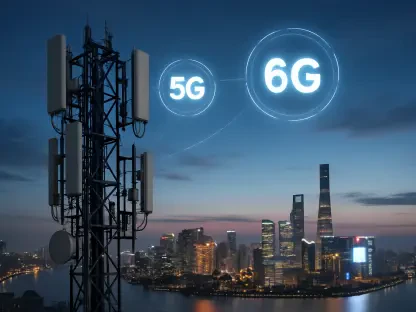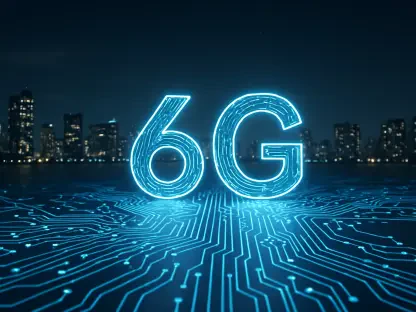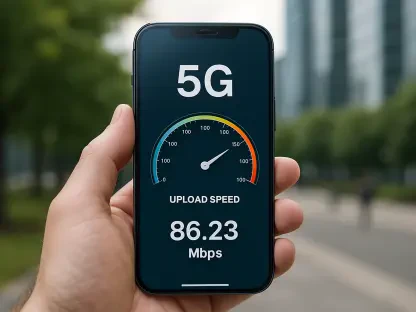In an unexpected turn of events, South Africa has ceased a contentious arrangement involving the Department of Home Affairs and Betway, a prominent sports betting firm. The deal aimed to convert certain Home Affairs locations into platforms for Betway advertisements by providing free Wi-Fi services. This initiative has sparked widespread debate over the ethical implications of utilizing government spaces to promote gambling. Scrutiny from media outlets and parliamentary inquiries inflamed public concerns about the transparency and decorum of such an unpublicized agreement. Revelations surfaced following a social media post by a TikTok user, raising alarms over the appropriation of government facilities for advertising purposes. This controversy underscores key issues around transparency and the ethical boundaries of public-private partnerships in governmental spaces, reflecting broader governance and accountability challenges.
Unveiling of the Deal and Subsequent Backlash
The partnership initially operated under a cloak of obscurity, with no public acknowledgment from the Department of Home Affairs regarding its dealings with Betway. The revelation by TikTok user @jkrizzle cast a spotlight on the covert nature of the agreement, raising questions about the appropriateness of the collaboration. Public discourse intensified, particularly focusing on transparency failures and the lack of informed consent from both governmental entities and the South African populace. The subsequent backlash was swift, prompting officials to address the procedural deficiencies surrounding the partnership’s inception and implementation. The uproar illuminated the precarious tightrope between innovation in public service offerings and maintaining ethical standards in partnerships, particularly those involving controversial industries like gambling.
The Wi-Fi initiative was executed through LA Solutions alongside partners Gresham Media, Blue Label Media, and Think Wi-Fi. The model revolved around providing complimentary internet access at selected Home Affairs sites, funded through the revenue generated by advertisements displayed to users upon logging into the network. Betway’s involvement was framed as an ad-funded support mechanism for the “free Wi-Fi pilot program” by officials. Home Affairs justified the non-disclosure of the deal, citing it as a pilot phase that warranted discretion. However, the veiled nature and perceived affiliations with sin tax entities compelled swift action and the withdrawal of Betway’s association. Officials have since been vocal about reassessing partnerships to circumvent similar situations in future endeavors.
Procedural and Ethical Concerns
Focus intensified on procedural aspects and compliance with established guidelines, drawing attention to the ethical dimensions of such partnerships. Home Affairs Deputy Director-General Thulani Mavuso assured that due procedures were followed and asserted no direct financial interaction between Betway and department officials had occurred. The department subsequently recognized an oversight in aligning with organizations labeled under sin taxes, resulting in Betway’s prompt exclusion from the project. The situation led to a commitment to enforcing strict measures to prevent analogous errors by involved entities in prospective agreements. Despite the controversy, Mavuso championed the project’s provision of significant free internet access to the public, emphasizing the economic advantages achieved through innovative financing structured around advertising.
The initiative succeeded in delivering over one terabyte of internet without imposing financial burdens on Home Affairs, highlighting a plausible model for public service enhancement without costs to the state. LA Solutions was accentuated as a pivotal partner in advancing governmental service efficacy, though the situation magnified the inherent risks tied to engaging with commercially driven collaborators. The complexity of balancing public interests with commercial viability mirrors broader conversations regarding ethical stewardship in governance and appropriations in utilizing public resources, stressing the importance of stringent oversight and transparency.
Political Connections and Repercussions
Central to the discourse are the political undercurrents linked to Betway’s South African ties, specifically connections to tech mogul Martin Moshal, noted for his notable political donations. These affiliations raised legitimate queries about the potential influence exerted by financial entanglements on governmental arrangements, meriting expanded scrutiny. When clarity was sought regarding these interconnections, Gresham Media, instrumental in onboarding Betway, redirected all inquiries to the Department of Home Affairs. This deflection invited further unease concerning transparency and accountability, showcasing the imperative of clear communication and candor in public-private engagements.
Betway Africa distanced itself by clarifying its lack of direct dealings with the government aside from being approached by Gresham Media to support the Wi-Fi initiative. The company likened its operational strategy to global models in high-traffic locales, where branded landing pages facilitate access to such services. Political dimensions of the issue advanced as MP Makashule Gana from Rise Mzansi demanded formal explanations in Parliament, allotting a deadline for Home Affairs Minister Leon Schreiber to respond. Former minister Aaron Motsoaledi, overseeing Home Affairs during the contract’s approval, refrained from commentary due to his transition to the health portfolio. Meanwhile, portfolio committee chairperson Mosa Chabane acknowledged pending advisory from the department and pushed for clarity to redirect inquiries appropriately.
Navigating the Intersection of Governance and Ethical Oversight
The partnership operated initially in secrecy, with no acknowledgment from the Department of Home Affairs regarding its dealings with Betway. The exposure by TikTok user @jkrizzle highlighted the secretive nature of the agreement, sparking questions about its appropriateness. Public debates grew, highlighting transparency issues and the absence of informed consent from both government entities and South Africans. The swift backlash prompted officials to address procedural shortcomings in the partnership’s formation and implementation. The controversy underscored the delicate balance between innovation in public services and maintaining ethical standards, especially in partnerships with controversial sectors like gambling.
The Wi-Fi initiative through LA Solutions involved Gresham Media, Blue Label Media, and Think Wi-Fi, offering free internet at selected sites. Revenue from ads shown during login funded this service, with Betway positioned as an ad-supported partner. Home Affairs justified non-disclosure due to its pilot phase status. Yet, the covert nature and ties to sin tax entities led to Betway’s swift dissociation. Officials are reassessing partnerships to avoid similar future issues.









